- Getting around Lijiang. Dont stay in the Old Towns more than 2 days, there is nothing to do. KRISS Oct 9, 2013 05:46
- 2013 Beijing Temple Fair BENNYLAU Feb 26, 2013 03:29
- Malaysian traveling from KUL - LAX vis Shanghai PVG ZATI_DY Jan 3, 2013 20:15
A Mountain Farmhouse Retreat
- Views: 4768
- |Vote: 0 0
- |Add to Favorites
- |Recommend to Friends
Longxu Mountain: The mountain that leaks...
There’s a mountain in Zhejiang Province (浙江省) that leaks. To be precise it gushes water, in extraordinary volumes, from every nook and cranny. The mountain is called Longxu Shan (龙须山) and is probably unheard of outside Zhejiang.
In fact, the mountain sits atop natural springs that burble icy clean water all the way to Tai Lake. Tai Lake (太湖) is a vast lake [the third largest freshwater lake in China, covering over 2000km2] overlapping the borders of Jiangsu, Zhejiang and Shanghai with its waters. The Chinese government has spent the past decade and billions of Yuan fighting pollution there.
The water that oozes from every Longxu Mountain pore looks so clean that it sparkles. This beauty is not just skin deep, the springs provide the scattering of villages that thrive between the bamboo-poled mountain slopes with all their drinking water. Not only this, but as the water travels down the mountain, finding the natural rock surfaces, it creates a cascade of waterfalls and grand shallow pools between a towering stone-sided gully.
Add in a couple of Buddhist temples, a colony of Macaques and a long, steep climb to a tiny village and this scenic spot, snuggled deep inside Zhejiang like a well kept secret, is the perfect place to retreat.
A greeting at the end of the road...
A road picks its way with steep curves from the bottom of Longxu Mountain to the top. It is frequented by very little traffic. Save for this minibus carrying an assortment of school children and their bags, a Chinese couple zoom past on a motorbike, the woman’s long black hair streaming out.
The going is slow. The school children disappear, one-by-one, at intermittent stops, into the warm smiles of waiting family who must set their watches by this late afternoon arrival.
The white stranger on the bus attracts cursory glances and random smiles.
The driver knows the address and nods arrival at the first house – a few hundred metres up the road and he has turned the bus around, passes the stranger and is gone.
“You must be Li Shan (李珊),” a voice from the doorway of the white farmhouse states.
I smile, nod and say hello, grateful to be recognised for once. He is perhaps 25. He beckons me inside, offers me a seat on a large, wooden couch and brings a glass of tea. He explains his parents will be back soon and I should wait.
I can hear the splashing and gurgling of water...
Water, water everywhere...
The farmhouse is home to a family of five: the son who greeted me, his wife and their young daughter and his parents. His mother welcomes me warmly, apologises for being late and gives me the choice of any of the four rooms she has had built for guests.
The rooms are housed in a 2-up-2-down extension invisible from the front of the house. She leads me around the back where I notice the water seeping through the soil and trickling along the pathways and I ask her where it comes from.
“Underground springs,” she replies. “There are many under the mountain. There’s water everywhere. We use the water for drinking, cooking and washing and it’s free: it belongs to the mountain and those who live on the mountain can use it.”
She shows me a pipe that runs to a deep stone trough, it is constantly overflowing and a few decent-sized fish are swimming about. In another tank there are frogs.
“We eat them,” she tells me. “They’re delicious and very fresh because of the water.”
As the only guest I choose a downstairs twin room next to the bathroom. It is large, clean and furnished with the essentials: air-conditioning, small bedside tables, a chair, cups and a flask of boiling water.
“All the water is from the mountain,” she notes proudly, indicating the flask. She nods to the bathroom. “The water in there is from the mountain too – wait till you wash your hair. It will feel really soft.”
“You can even fill your bottle with it.” She points me in the direction of a tap fixed inexplicably into the soil. I feel a little reluctant, unconvinced of its cleanliness but reason that it doesn’t seem to be doing the mountain’s human or animal inhabitants any harm.
“What do you think ? Very cool and refreshing, isn’t it ?”
I fill my bottle and under the influence of her continual prompting, take a gulp. I agree at once, and without coercion, that it is indeed.
Daily life at the white farmhouse...
The floors are concrete and the huge ground floor space has been partitioned into separate rooms: an open plan sitting room and dining room and an enclosed kitchen. Large wooden doors open directly into the dining room from the outside of the house and this is where other villagers and friends come and go or stop to say hello. The ceilings are high and wood-clad; the walls are bare plaster with the exception of a few posters of Chairman Mao.
A pile of tealeaves is drying on the floor and all manner of food is hanging from the beams: tofu, fish, chilli peppers and hunks of pork. Across the road the family has a plot of land and grow their own vegetables: I spot onions, gourds, coriander and tomatoes. They pick the fresh bamboo shoots that emerge during the spring, chickens supply a year round source of eggs and nuts are harvested from nearby trees. Chimney-like wooden beehives produce honey and the newest leaves of some other trees are the source of the tealeaves that provide a sweet, cure-all tea. I am delighted and humbled by their self-sufficiency.
The kitchen is the life of this house. The family gathers there in the early evening to cook for me and for themselves. The nights are spent closed-up in the kitchen: cleaning up, preparing for breakfast, gossiping with neighbours, watching TV and playing with the youngest member of the family.
During the day the men harvest bamboo poles which are sold to a man in a blue truck who comes daily with his scales to weigh and pay for each load. The women walk down the mountain to a stall they have and sell tea, bamboo shoots, dried mushrooms and other assorted “mountain foods”. It is an unenviable half hour walk down a steep path and a much longer one back.
Dinner and a story about smoked pork...
Dinner is as real and home cooked as I have ever eaten and tasted all the richer because of it. An omelette of egg and chives, sliced-sugared tomatoes, bamboo shoots, roasted nuts and smoked pork. The family dine separately which disappoints me a little, but after eating they bring a few bottles of beer and sit down to chat with me.
I ask them about the assortment of pork joints, legs, ribs and fish that are hanging from the ceiling. My hosts are animated and open and tell me this story:
The pigs come from a farmer in the neighbouring province of Anhui and are the best in the whole province and are not too fat, or old. They slaughter them right here in the village so that the meat can be as fresh as possible and then they drain the blood. Once this process is completed they cover the meat in salt and leave it for at least a week or until the weather becomes cold enough to begin using the fire, this is when the smoking occurs. During the winter, for weeks at a time, the family will use the kitchen as a smokehouse, stoking the wood burning pit in the floor and hanging the meat above it. They keep and use the meat and fish throughout the year, repeating the process every winter.
The old man shows me the kitchen walls and ceiling that are stained a dirty black/brown by the smoke.
Longxu Mountain Village: The village is changing...
Rickety walls, woodpiles, stray cats and chickens wander...
The village, if it can be called such a thing, is home to less than 200 people. A single road runs a hundred metres along and then stops in a rough turning circle. There are some houses further up in the mountain that can only be reached on foot. There are no shops.
A few hundred metres down the road is a path that leads down to the Taihu Yuan Scenic Area and eventually reaches the foot of the mountain.
Along the road are perhaps 20 more houses although none are like the farmhouse I am staying in. By some effort of collective consciousness, a mini farmhouse retreat boom has started and most of the houses are in the process of being re-built or extended. This is not without its negative consequences. The ample views of distant, tree-festooned mountains once visible from the white farmhouse have been blocked by the opposite house’s new extension. The new buildings resemble the average concrete dwelling found in every town and city in China and I am grateful that the white farmhouse has at least retained some character.
I meet a woman who offers to show me around her farmhouse. It is still being built and she takes me up the half-finished stairs to walk out on the massive balcony. The view is sumptuous,
“The balcony is so big!” I exclaim.
“To make room for all the people,” she replies. “I think they will all want to eat and drink and see this.” She points out to where the papery evening moon is floating on the fading cheeks of dusk and the first stars are showing their bright faces. The forested hills and mountains seem to belong to the earth and the sky...
“How many rooms will you have ?”
“Fifteen, and each one can have three people in it.”
Predicting the weather...
It is time for me to leave and say my goodbyes to the family. They are anxious to know if I enjoyed my stay and I assure them that I have. They welcome me back anytime but suggest I avoid the May and October holidays.
“There are so many people here,” the woman says, and I wonder if I detect a trace of sadness, or if it is just my imagination.
“Come back in the summer. The mountain is high and the weather is much cooler and fresher –“
“It will rain this afternoon,” the husband interjects and we all look at him.
I laugh and jokingly ask: “What time?”
“About 3pm,” he replies with not a trace of humour. “I can tell by the floor.”
I look down and notice that he is indicating a dark patch of concrete spreading in the dining room. He tells me that when there is moisture in the air, it soaks through the concrete and they can predict the weather using this method.
I am not inclined to disbelieve him.
Descending with water...
Getting down the mountain is a long and picturesque journey, where at some unspecified point I enter the boundaries of the Taihu Yuan Park (太湖源). It is a concrete path of steps that moves inexorably down, down, down and deep into a gully. The sound of water follows me and at odd places tiny waterfalls spit out over rocks as though the water is bursting through the mountain’s sides.
Descending further the trickles of water become small pools and the small pools begin to interlink until I am tracking a stream which seems to be getting wider and faster at every meeting.
Taihu Yuan unfolds into dozens of rumbling rocky waterfalls and chattering streams that occasionally open out into shallow pools, as still and silent as the cloudless sky they mirror.
Temples and tea...
There is a Buddhist Temple sitting by the one of the waterfalls. It is modern but contains a few relics dating from the 13th Century when it was originally built. A couple of monks are dozing in one of the doorways. There are plenty of candles, their wax spilling in grotesque splendour, marking no shortage of worshippers.
Three old men are gathered nearby playing mah-jong with typical table-slapping exuberance. I rest for a while to watch them.
A number of old women crowd around me trying to sell me tea, nuts, bamboo shoots and other mountain goods. Having already filled my bag at the white farmhouse, I am reluctant to add any more. They are persistent and drop their prices so that I end up buying two different types of “tea” for 1RMB each.
Trees blossom and rows of tea plants are showing their bright green and highly prized leaves. A handful of workers with great circular straw hats and straw baskets pick with swift fingers at the new growth.
Meeting the Macaques...
There are a troop of Macaque monkeys here at Taihu Yuan, under “national protection”.
The man who looks after the Macaques is friendly. He tells me there are over a hundred living on the mountain.
“What do they eat ?” I ask curiously, naively assuming that they live off the mountain trees and shrubs.
“Rice.”
For a small fee the man will “call down” the monkeys, with promises of nuts and a bizarre whistle seeming to be all it takes. You can have your photo taken at close quarters, or simply watch from afar as the monkeys nimbly skip down the steep rocks to grab a few nuts.
The man indicates a ragged looking monkey who appears to be barking instructions and calls him the “boss” (老板).
Whole families come down and there are many babies, chasing each other and playing like gymnasts in the tree branches.
It is a contrived meeting, money passes hands, the transaction completed and the monkeys are “free” to return to whatever it is that monkeys do when they are not being photographed by tourists. A couple linger on the rooftops, or snatching up the remaining nuts and I get some last minute pictures of their unnervingly frank faces.
******************************************************************
It is 4pm, when, safely ensconced on the bus homeward bound, the rain begins. The sky has been slowly darkening ever since I left the mountain.
A weekend at Longxu Mountain is like taking time out from the world and its quiet delights reside in the people and their stories – I feel I have scratched the surface of the “real” China. I can only smile at the stories I have found in this, the unlikeliest of places: here on the leaking mountain with the white farmhouse.
Information (2007)
Taihu Yuan (太湖源) is a scenic spot that climbs up through Longxu Mountain (龙须山). If you want to ascend or descend the mountain through the scenic spot you must buy a ticket once you reach the entrance: it is a long steep walk and worth spending a few hours looking around. Walking up through the scenic spot to the very top you will reach a road, and need to walk 100m to the left to reach Longxu Mountain Village. VillageYou can reach Longxu Mountain Village by public minibus and avoid the scenic spot if you wish, but the buses are very infrequent, 9RMB from Lin’an (临安).
Getting to Taihu Yuan (太湖源)
From: Hangzhou (杭州), West Bus Station
To: Lin’an (临安)
Time: 1 hour
Cost: 10RMB
From: Lin’an (临安)
To: Taihu Yuan (the foot of Longxu Mountain) (太湖院门口)
Minibus: No16
Time: 1 hour
Cost: 7RMB
From: Taihu Yuan entrance (太湖院门口)
To: Longxu Mountain Village (龙须山村)
Time: 20 minutes
Cost: 3RMB
Taihu Yuan Park Entrance Fee
48RMB per person (children under 1.3m are half price)
10RMB for having your picture taken with the monkeys
5RMB to have the man call the monkeys and let you take your own pictures
Staying At The White Farmhouse
The family advise you to call ahead and book although they are usually only busy during the Golden Week holidays at the beginning of May, October and at Spring Festival. They do not speak English.
Name: 夏华忠,叶桂花
Address: 临安市太湖元稹龙须山村太湖源顶28号
Telephone: 0571-63790420



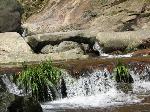
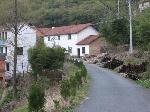
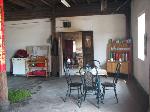
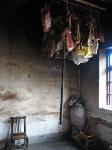
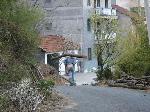
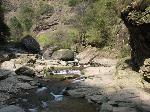
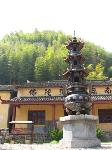
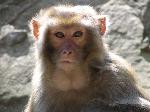
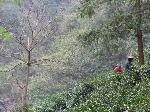
 Copyright © 1998-2026 All rights reserved.
Copyright © 1998-2026 All rights reserved.